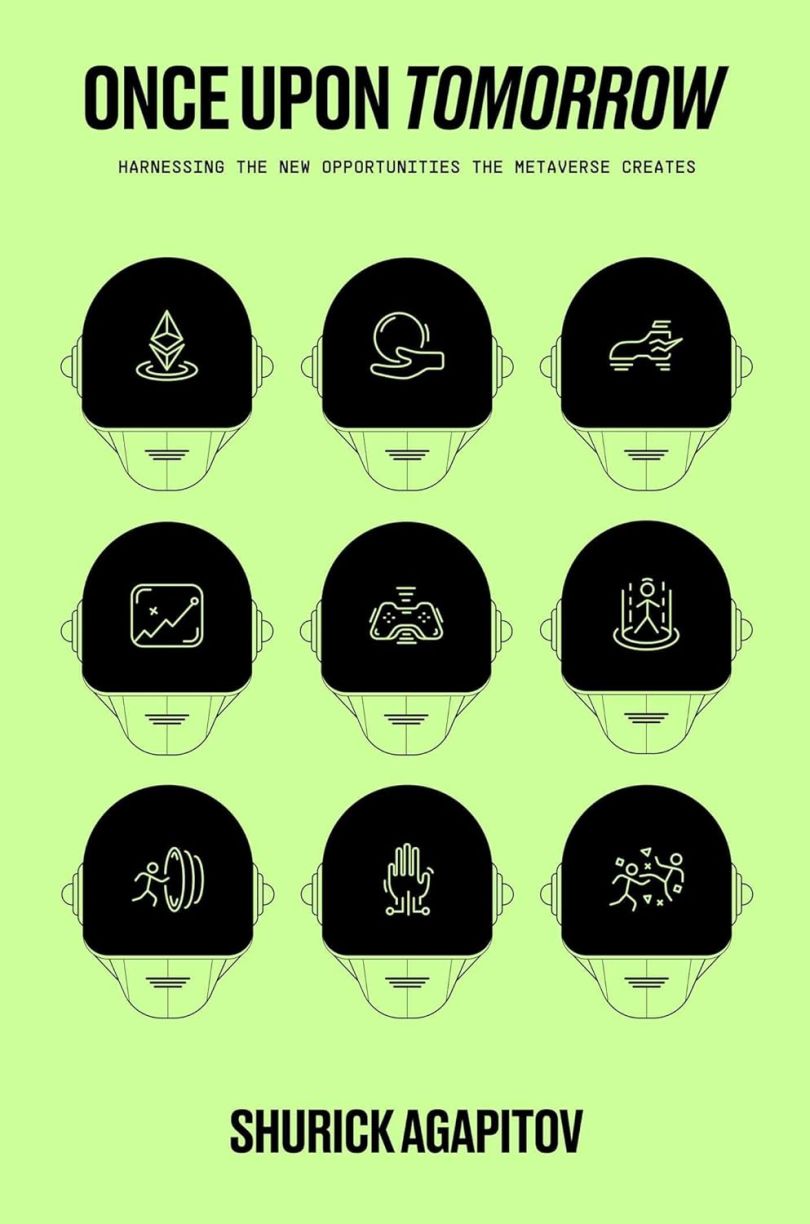When I think about all the great movies I’ve seen in my lifetime, I realize how many I haven’t seen.
Pick any studio you want in Los Angeles, and you’ll quickly learn they are sitting on a gold mine of content. For every movie that a studio makes, there are hundreds of scripts that it never produced, including film franchises that never saw the chance to extend beyond one film.
There could be thousands of stories that have never been revealed to the world, dating back decades. An untold number of characters are locked in time capsules, and the Metaverse can finally reveal them to the world.
Through the Metaverse, it would be relatively inexpensive to put these scripts out into the world, license them and allow Metaverse producers to develop them. Furthermore, any filmmaker looking for a budget will have the opportunity to fund and monetize their films through revenue shares and unique agreements that help build the universe of their movies.
What Is a Metasite?
Metasites are 3D virtual spaces powered by AI, Lumen and advanced graphics wherein you can create consumer experiences.
AI and the Metaverse
I want to explain something key that can make this future possible and profitable for Hollywood producers through Metasites, or networks of virtual environments: characters. In the future, most people will likely not be able to tell the difference between a video of a real person speaking and a video of artificial intelligence. Of course, some people are worried about this — but in the world of Hollywood, I think it offers limitless potential.
Artificial intelligence advancements will allow us to monetize the digital likeness of past characters and actors. And anyone who owns and operates the estate of Hollywood’s greatest actors will quickly recognize the importance of monetizing those legacies. In the future, the opportunity to reengage with the audience will be unlike anything ever witnessed.
One of the greatest inventions in history was Johannes Gutenberg’s printing press in 1436, which made it possible to mass-produce books and disseminate them worldwide. This fueled the proliferation of the Bible around the globe and made the works of William Shakespeare available on every continent by the mid-seventeenth century.
Artificial intelligence will outpace the printing press in every way as it continually learns and grows. In fact, researchers say that AI’s power and speed double about every six months. So, in twelve months, AI will be four times more powerful than it is today. In four years, AI will be 256 times more powerful than it is today. With such advancements comes the opportunity to accelerate the potential of this technology.
Immersive Storytelling on a New Level
I propose straightforward projects today that bring characters of past films and television to life. Whether it’s in a chatbot or a digital experience, fans will be able to have real conversations with characters. Those conversations will require today’s storytellers to see how these characters would react.
How do they talk? What do they think? How do they feel? What questions would they avoid? What would make them blush? These questions are vital to developing characters in the Metaverse and to creating incredible storytelling opportunities that will offer lasting experiences for decades.
Unlike social media, the Metaverse is a playground for users to immerse themselves in something more profound and interactive.
As we create these characters, there is ample opportunity to develop the environments in which they exist. For example, with Metasites, consider the possibility of where these characters would live. Storytellers can help build these environments and provide input into even the most subtle details of a character’s background.
Suppose a fan visits a Metasite that takes them into the home of a famous character. In that case, every detail is critical, and every element might warrant a response in a conversation.
Imagine that you step into the university office of Professor Henry “Indiana” Jones from the films Raiders of the Lost Ark and Indiana Jones and The Last Crusade. A conversation between the two of you might occur at a crowded desk from the 1930s. It might be covered with papers and artifacts. On the shelf in the background, there might be parts of a treasure he uncovered somewhere in the Middle East. Professor Jones will likely have an answer if you ask about that tiny detail. Better yet, as the Metaverse unfolds, he might even be able to take you on an adventure.
And this is just one example of one character in one film franchise. The potential for storytelling is limitless. It could be a universe for Han Solo, Terminator, James Bond, Ellen Ripley, Captain Jack Sparrow, Bruce Wayne, John McClane, Tyler Durden, Vito Corleone, Marty McFly or Doc Brown.
AI will enable storytellers to expand on all of them — and characters who don’t yet exist today. These characters can travel across environments, interact with each other and create experiences for fans across the Metaverse.
A New Avenue for Creators to Monetize
But it doesn’t just have to be around fiction. The Metaverse can help documentarians provide deeper detail and insight into their investigations and stories. In the world of true crime, the Metaverse can give producers and directors a chance to showcase real-life mysteries and allow viewers to investigate murders. Imagine a world in which you can tag along with a detective to look for clues, add items to their digital wallet and put together a puzzle from the past.
This brings us to the monetization element that emerges in digital items.
 In the world of Metasites, storytellers can monetize items that can expand on the story. Creators can import their most popular characters and stories into the Metaverse and share in the revenues that are generated. There will be opportunities to directly engage the most loyal fans and invite them with special NFTs to unique, custom experiences. Digital items can develop the marketing potential and incentivize users to dig deeper into the worlds created by storytellers.
In the world of Metasites, storytellers can monetize items that can expand on the story. Creators can import their most popular characters and stories into the Metaverse and share in the revenues that are generated. There will be opportunities to directly engage the most loyal fans and invite them with special NFTs to unique, custom experiences. Digital items can develop the marketing potential and incentivize users to dig deeper into the worlds created by storytellers.
Viewers who want the most immersive experience of the characters and environment will gladly spend money to dive deeper into the world of storytelling. They will come to know characters in the Metaverse the same way avid readers view great authors as friends.
AI will produce massive levels of written, spoken and visual content. The challenge and the opportunity are to give people a real, immersive experience that draws them back repeatedly.
The Metaverse can drag users away from fifteen-second TikTok videos and constant scrolling of X (Twitter) and social media sites. In contrast to these platforms, the Metaverse is a limitless playground for users to immerse themselves in something more profound, interactive and breathtaking.
Open Call for L.A. Creators
Looking forward, creative storytellers will shape the Metaverse and give the world a deeper understanding of their characters and process. For all Los Angeles writers, content producers, directors and individuals who want to tell a story, I invite you to take part in this movement. For others outside of the Los Angeles area who share the same storytelling ambitions, I encourage you to get in touch as well.
I will work with you. I will produce with you. I will help you develop the tools to bring these Metasites to life in ways that you are just starting to imagine. The Metaverse will create the new Golden Age of Hollywood. All you have to do is take the first step.
This is an excerpt from Once Upon Tomorrow: Harnessing the New Opportunities the Metaverse Creates (Forefront Books; March 5, 2024) by Xsolla founder Shurick Agapitov.





